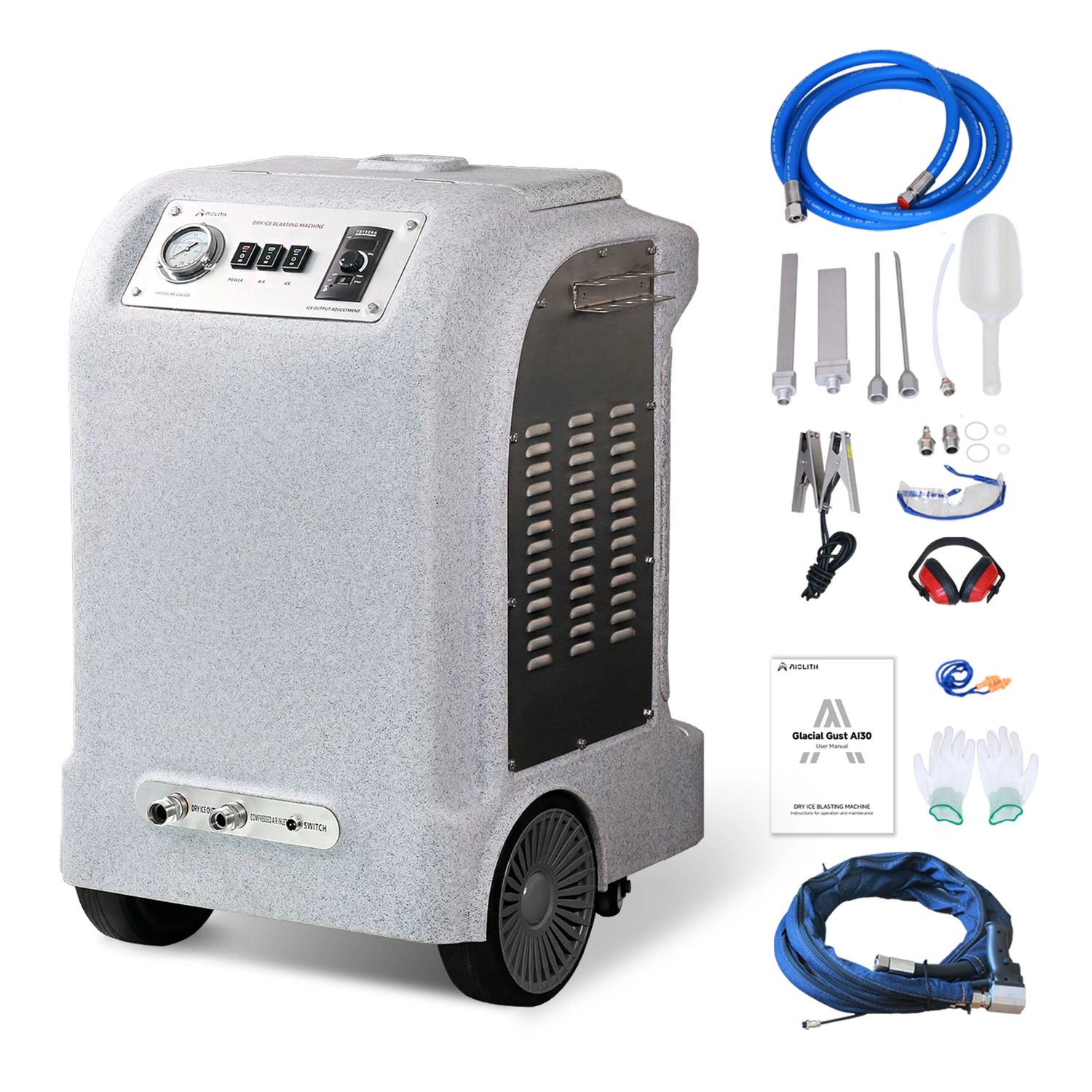Industrial Floor Cleaning Equipment: 12 Essential Machines to Transform Your Facility’s Cleanliness
Share
What Is Industrial Floor Cleaning Equipment?
Industrial floor cleaning equipment refers to a wide range of specialized machines designed for maintaining cleanliness in large-scale commercial or industrial facilities. These machines address different cleaning needs—from removing dust and debris to scrubbing, polishing, and drying floors.
Their purpose is to reduce manual labor, enhance cleaning speed and quality, and ensure safety in environments such as warehouses, manufacturing plants, airports, and shopping centers.
Why Industrial Floor Cleaning Equipment Is Vital
Large facilities present unique cleaning challenges due to extensive surface areas and high foot or vehicle traffic. Relying on manual cleaning tools is inefficient and often ineffective. Industrial floor cleaning equipment offers:
- Increased Productivity: Clean thousands of square feet in a fraction of the time manual methods require.
- Improved Safety: Machines minimize wet floor hazards and reduce dust-related respiratory risks.
- Enhanced Cleanliness: Mechanical scrubbing and polishing achieve deeper cleaning and more consistent results.
- Cost Savings: Reduced labor, chemical, and water usage contribute to long-term savings.
- Employee Well-being: Ergonomically designed equipment lowers physical strain on cleaning staff.
12 Essential Industrial Floor Cleaning Machines
Walk-Behind Floor Scrubbers
Compact and versatile, these machines are ideal for mid-sized spaces, combining scrubbing, rinsing, and drying in one pass.
Ride-On Floor Scrubbers
Designed for large, open spaces, ride-on scrubbers improve operator comfort and speed, covering extensive areas efficiently.
Industrial Sweepers
Sweepers efficiently remove dust and debris from floors, prepping them for scrubbing or polishing. Some models combine sweeping and scrubbing.
Burnishers and Polishers
Used to restore shine and protect floor finishes, especially in high-traffic commercial spaces.
Pressure Washers
High-pressure water jets remove grease, oil, and stubborn grime from durable floors, often used outdoors or in food processing facilities.
Steam Cleaners
Employ steam for chemical-free deep cleaning and sanitation, excellent for sensitive environments like hospitals.
Industrial Vacuums
Heavy-duty vacuums for fine dust, liquid spills, and large debris, complementing sweeping and scrubbing efforts.
Carpet Extractors
Machines that deep-clean commercial carpets by spraying cleaning solution, agitating fibers, and vacuuming dirt.
Floor Sanders and Grinders
Prepare floors for new coatings by removing old finishes, smoothing surfaces, or polishing concrete.
Automatic Floor Dryers
Help speed up drying times, reducing downtime in busy facilities.
Scrubbing Robots
Autonomous machines programmed for repetitive floor cleaning tasks, improving labor efficiency.
Wet/Dry Vacuum Cleaners
Versatile machines capable of handling both liquid spills and dry debris.
Factors to Consider When Selecting Industrial Floor Cleaning Equipment
- Facility Size: Larger spaces often need ride-on or robotic machines, while smaller spaces do better with walk-behind models.
- Floor Material: Choose equipment and cleaning attachments that match your floor type, such as concrete, tile, epoxy, or carpet.
- Cleaning Frequency: High-traffic areas require machines with bigger tanks and longer runtimes.
- Operator Skill Level: Consider user-friendly models if you have limited training resources.
- Budget: Balance upfront costs with operational savings and durability.
Maintenance Tips to Maximize Equipment Life
- Clean tanks, brushes, and filters after every use
- Replace worn parts promptly
- Charge batteries properly and avoid deep discharge
- Schedule routine inspections and servicing
- Store equipment in clean, dry locations
Advantages of Partnering with Brands Like Aiolith
Aiolith offers a comprehensive range of industrial floor cleaning equipment designed with innovation, durability, and efficiency in mind. Their machines often feature:
- Lithium-ion batteries for extended operation
- Intelligent water and chemical management systems
- Ergonomic designs to reduce operator fatigue
- Compact profiles for easy maneuverability
- Responsive customer service and training support
Choosing a trusted brand like Aiolith ensures reliable performance and long-term value.
Frequently Asked Questions (FAQs)
What types of floors can industrial equipment clean?
Most machines can handle hard floors such as concrete, tile, vinyl, and epoxy. Some models are designed for carpets.
Can industrial floor cleaning machines be used during business hours?
Many modern machines operate quietly enough for daytime use, minimizing disruptions.
How often should industrial floor cleaning equipment be serviced?
Daily cleaning and monthly inspections are recommended, with professional servicing annually.
What is the average lifespan of industrial floor cleaning machines?
With proper care, these machines can last 7 to 10 years or longer.
Are there eco-friendly options available?
Yes, many newer machines, including Aiolith models, focus on reducing water and chemical usage.
How much training is needed to operate industrial cleaning equipment?
Most machines are user-friendly, with basic training sessions lasting a few hours.
Conclusion
Industrial floor cleaning equipment is indispensable for maintaining cleanliness, safety, and efficiency in large commercial and industrial environments. From walk-behind scrubbers to ride-on machines and innovative robotic cleaners, there’s a solution for every cleaning challenge.
Investing in high-quality equipment from reputable brands like Aiolith not only improves cleaning results but also enhances workforce productivity and reduces long-term costs. With proper machine selection, operation, and maintenance, your facility will enjoy spotless floors and a safer environment for years to come.

